
WASHINGTON, May 1 (Xinhua) -- The U.S. government on Wednesday condemned Tuesday's physical clashes taking place in the parliament of Venezuela, describing the violent acts as " particularly inappropriate."
"Let me state clearly, violence has no place in representative democratic system, and is particularly inappropriate within the national assembly," said State Department spokesman Patrick Ventrell at a briefing.
"We're deeply concerned by the violence that occurred," said Ventrell, urging all parties to refrain from violence.
Physical clashes broke out in the Venezuelan parliament Tuesday, with a number of legislators getting injured, amid heightened tension over the country's disputed presidential election result. Opposition and ruling party members traded blows during the brawl, with each side blaming the other for starting the violence.
Venezuela's National Electoral Council (CNE) on April 15 officially declared Nicolas Maduro to be president elect for the 2013-2019 presidential term, after confirming his victory in the presidential election race held the day before and rejecting the claims of fraud from Henrique Capriles, presidential candidate of the opposition coalition. Maduro was sworn in as the new Venezuelan president on April 19.
Washington, which has not openly recognized Maduro as Venezuela 's new president, has been pushing for a recount of the presidential votes instead.
CNE on Monday began a partial recount of votes cast in the contested presidential elections.
"In terms of generating greater confidence in the vote outcome, we thought that it was good for the Venezuelan institutions and for the Venezuelan people to pursue that and to look into irregularities," Ventrell said at a news briefing held Wednesday, referring to the ongoing recount.
He also signaled a subtle change of tone on recognition of Maduro as Venezuela's new president.
"The bottom line is that there's not this sort of sense of legal recognition when we say, 'You're recognized as the sovereign leader of a country,'" said Ventrell. "We have a bilateral relationship with the government, and that bilateral relationship continues."
U.S.-Venezuela relations have been strained in recent years, and the two countries have not had each other's ambassadors since July 2010. Maduro and his predecessor, the late Venezuelan president Hugo Chavez, have regularly accused Washington of seeking to destabilize their oil-rich country.

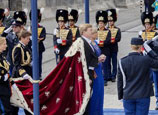


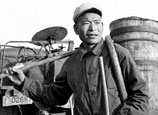
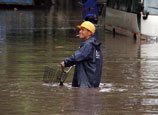
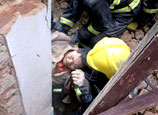

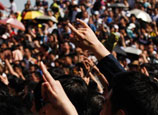
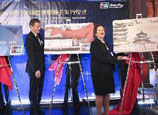







 Different walks of life in China : Labor Day
Different walks of life in China : Labor Day


![]()
